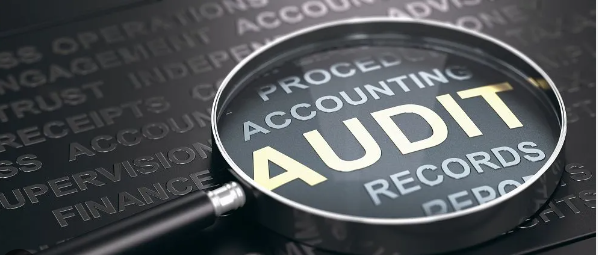 Project Management Courses
Project Management Courses
 Mini Masters Programmes In Management
Mini Masters Programmes In Management
 Mini Professional Diploma In Management
Mini Professional Diploma In Management
 Short Masters
Short Masters
 Leadership & Professional Development
Leadership & Professional Development
 Human Resources Training Courses
Human Resources Training Courses
 Tendering & Contract Management
Tendering & Contract Management
 Procurement & Warehouses
Procurement & Warehouses
 Strategic Planning Courses
Strategic Planning Courses
 Quality Management & 6 Sigma Courses
Quality Management & 6 Sigma Courses
 Customer Service Courses
Customer Service Courses
 Administrative & Secretariat Courses
Administrative & Secretariat Courses
 Administrative Skills Courses
Administrative Skills Courses
 Sales Management Courses
Sales Management Courses
 Education Management Courses
Education Management Courses
 Retail Management Courses
Retail Management Courses
 Risk Management Courses
Risk Management Courses
 Office Management Courses
Office Management Courses
 Management Skills Courses
Management Skills Courses
 Protocol and & Management
Protocol and & Management
 Diplomacy & International Relations
Diplomacy & International Relations
 Media & Journalism
Media & Journalism
 Public Relations
Public Relations
 Telecommunication Courses
Telecommunication Courses
 Information Technology and Programming Courses
Information Technology and Programming Courses
 Graphics & Design Skills Courses
Graphics & Design Skills Courses
 Programming & Coding Courses
Programming & Coding Courses
 Cybersecurity and Digital Security
Cybersecurity and Digital Security
 Environment Municipality management
Environment Municipality management
 Urban Planning and City Building Courses
Urban Planning and City Building Courses
 Accountancy & Bookkeeping Courses
Accountancy & Bookkeeping Courses
 Corporate Governance & Anti Corruption Courses
Corporate Governance & Anti Corruption Courses
 Investment & Banking Training Courses
Investment & Banking Training Courses
 Financial Reporting And Auditing
Financial Reporting And Auditing
 Oil and Gas Training Courses
Oil and Gas Training Courses
 Renewable and Clean Energy Training Courses
Renewable and Clean Energy Training Courses
 Electricity and operation & maintenance
Electricity and operation & maintenance
 Health & Safety Training Courses
Health & Safety Training Courses
 Public Health & Hospital Management Courses
Public Health & Hospital Management Courses
 Training Courses in Engineering Maintenance
Training Courses in Engineering Maintenance
 Engineering Management
Engineering Management

The British Academy for Training and Development offers a diverse range of diplomacy and international relations courses tailored to meet the needs of professionals in various fields. These courses are designed to provide participants with a comprehensive understanding of the multifaceted nature of diplomacy, international relations, and the strategies employed to navigate the complex global landscape.
Training Course in Factors Affecting International Relations
£3800
2024-12-30
2025-03-31
2025-06-30
2025-09-29
International Laws and Regulations
£3800
2025-01-06
2025-04-07
2025-07-07
2025-10-06
Important Reasons to Study International Relations
£3800
2025-01-06
2025-04-07
2025-07-07
2025-10-06
Neo Classical Realism Theory
£3800
2025-01-13
2025-04-14
2025-07-14
2025-10-13
The Principles of Game Theory in Politics and International Relations
£3800
2025-01-20
2025-04-21
2025-07-21
2025-10-20
Preparing International Cooperation Projects
£3800
2025-01-27
2025-04-28
2025-07-28
2025-10-27
Course in Diplomatic Affairs and International Relations
£3800
2025-02-03
2025-05-05
2025-08-04
2025-11-03
Etiquette and Protocol in International Relations
£3800
2025-02-10
2025-05-12
2025-08-11
2025-11-10
Modern International Relations and Soft Power Strategy
£3800
2025-02-17
2025-05-19
2025-08-18
2025-11-17
The Theory of Realism in International Relations and its Perspectives on Global Interests
£3800
2025-02-24
2025-05-26
2025-08-25
2025-11-24
The Concepts of Strength and Weakness in International Relations
£3800
2025-03-03
2025-06-02
2025-09-01
2025-12-01
Diplomatic Affairs and International Relations
£3800
2025-01-06
2025-04-07
2025-07-07
2025-10-06
The British Academy for Training and Development offers a comprehensive suite of diplomacy and international relations courses designed to meet the diverse needs of professionals across various sectors. With the increasing complexity of global affairs, the academy's programs aim to equip participants with the essential skills and knowledge required to navigate the intricate world of diplomacy and international relations effectively. These courses cover a broad range of topics, ensuring that participants gain a holistic understanding of different diplomatic practices and the ever-evolving international landscape.
Types of Courses OfferedDiplomatic Negotiation and Conflict Resolution Masterclass
This in-depth masterclass focuses on the art and science of negotiation, specifically tailored for professionals involved in diplomacy. Participants engage in practical exercises, including simulations and role-playing scenarios, which replicate real-world negotiations. The course explores various negotiation strategies, including interest-based negotiation, positional bargaining, and integrative approaches. Participants learn to identify common ground and areas of divergence while also developing essential communication skills that foster understanding and cooperation among conflicting parties. By analyzing successful and unsuccessful negotiation case studies, learners gain insights into the psychological and cultural factors that influence negotiation dynamics, equipping them with the tools needed to resolve conflicts effectively and promote peace on the international stage.
Public Diplomacy and Soft Power Strategies
This course delves into the concept of public diplomacy, emphasizing the importance of soft power in shaping international relations. Participants explore how countries utilize cultural diplomacy, media outreach, and public engagement to influence foreign public opinion and enhance their international standing. Through examining successful public diplomacy campaigns, learners gain practical insights into creating effective communication strategies that align with national interests. The course highlights the role of social media and digital platforms in modern diplomacy, equipping participants with tools to engage diverse audiences and foster positive international relationships. By the end of this course, participants will be adept at crafting public diplomacy initiatives that resonate globally and effectively project their nation’s values and priorities.
Crisis Management in International Relations
In a rapidly changing world, the ability to manage crises is vital for diplomats and international relations professionals. This course focuses on crisis management frameworks and strategies essential for navigating diplomatic challenges. Participants engage in risk assessment exercises and learn how to develop crisis communication plans that ensure timely and effective responses. The course covers various types of crises, from political upheavals to natural disasters, emphasizing the need for flexibility and adaptability in diplomatic responses. Participants also analyze historical case studies of diplomatic crises, allowing them to critically evaluate decision-making processes and the implications of various actions taken during critical moments. By the end of this program, participants will have a robust understanding of the complexities of crisis management in diplomacy, enabling them to respond confidently and competently to future challenges.
International Trade and Economic Diplomacy Course
This course explores the intricate relationship between international trade and diplomacy. Participants gain insights into the mechanics of trade negotiations, economic sanctions, and the role of international organizations such as the World Trade Organization (WTO). The program examines case studies of significant trade agreements and disputes, allowing participants to understand the complexities of global economic relations. Participants will also learn how to leverage economic diplomacy to foster cooperation and advance national interests, especially in a world where economic ties increasingly influence political relations. The course encourages critical thinking about trade policies and their implications for international stability, equipping participants with the skills needed to navigate the often-turbulent waters of global trade and economic diplomacy effectively.
Human Rights and Humanitarian Diplomacy Program
This program provides a comprehensive overview of the role of diplomacy in advocating for and protecting human rights globally. Participants explore the mechanisms through which international organizations, governments, and non-governmental organizations (NGOs) work to promote human rights and address humanitarian crises. The course covers legal frameworks governing human rights, including international treaties and conventions, as well as the diplomatic strategies used to respond to violations. Participants analyze case studies of successful humanitarian interventions, equipping them with the knowledge and skills needed to engage effectively in human rights advocacy. The program emphasizes the importance of cultural sensitivity and ethical considerations in humanitarian diplomacy, preparing participants to navigate the complexities of international human rights advocacy.
Diplomatic Communication and Media Relations Course
This course emphasizes the critical role of communication in diplomacy. Participants learn how to craft effective messages and engage with the media to promote their diplomatic objectives. The course covers various communication strategies, including press releases, media interviews, and public speaking techniques. Participants will engage in practical exercises that simulate media interactions, allowing them to develop the skills needed to convey their messages clearly and persuasively. By understanding the media landscape and how to navigate it, participants will be better equipped to manage public perceptions of diplomatic efforts and effectively communicate their country’s positions on global issues.
Cultural Diplomacy and Global Engagement Program
This program focuses on the importance of cultural diplomacy in fostering mutual understanding and respect among nations. Participants explore how cultural exchanges, educational initiatives, and artistic collaborations can enhance international relations. The course emphasizes the role of culture in shaping national identity and how it can be leveraged to build bridges between countries. Participants will learn about successful cultural diplomacy initiatives and gain practical insights into developing their own programs that align with diplomatic goals. By the end of this course, participants will understand the power of cultural diplomacy as a tool for fostering international collaboration and peace.
International Security and Peacebuilding Strategies Course
This course provides an overview of the key concepts and strategies related to international security and peacebuilding. Participants will explore the various dimensions of security, including military, economic, and human security. The course examines contemporary security challenges, such as terrorism, cyber threats, and regional conflicts, and analyzes the diplomatic responses to these issues. Through case studies of successful peacebuilding initiatives, participants will learn about the importance of dialogue, negotiation, and collaboration in resolving conflicts and promoting stability. By the end of the program, participants will be equipped with the knowledge and skills needed to engage in effective security diplomacy and contribute to peacebuilding efforts globally.
Regional Diplomacy and International Relations Course
This course focuses on the dynamics of regional diplomacy and its impact on international relations. Participants will examine case studies from various regions, such as the Middle East, Europe, and Asia, to understand how regional actors interact and influence global politics. The course covers key regional organizations, treaties, and conflict resolution mechanisms, providing participants with insights into the complexities of regional diplomacy. By analyzing historical and contemporary examples, participants will develop a nuanced understanding of how regional dynamics shape international relations and the importance of context in diplomatic negotiations.
Sustainable Development and Environmental Diplomacy Program
This program addresses the growing importance of sustainable development and environmental issues in international diplomacy. Participants explore the role of international agreements, such as the Paris Agreement, in promoting global environmental cooperation. The course emphasizes the interplay between environmental challenges and diplomatic efforts, highlighting how sustainable development can be integrated into national and international policies. Through case studies and collaborative projects, participants will learn about innovative approaches to environmental diplomacy and the importance of stakeholder engagement. By the end of the program, participants will have the knowledge and skills needed to advocate for sustainable policies and practices within the framework of international relations.
Each course at the British Academy combines theoretical knowledge with practical application through interactive workshops, simulations, and discussions led by experienced practitioners in the field. Participants are encouraged to engage in collaborative learning, sharing their perspectives and insights with peers from diverse backgrounds. The academy fosters a supportive environment where participants can build valuable professional networks that can enhance their careers in diplomacy and international relations.
The British Academy for Training and Development's extensive range of diplomacy and international relations courses provides participants with the skills and insights necessary to navigate the complexities of global affairs. By understanding various aspects of diplomacy and international relations, professionals can effectively engage in negotiations, advocate for their countries’ interests, and contribute to a more peaceful and cooperative global environment. Whether for career advancement or personal growth, these courses are an invaluable resource for anyone involved in the dynamic field of diplomacy, equipping them with the tools needed to succeed in an increasingly interconnected world. With the academy's commitment to delivering high-quality training and education, participants can expect a transformative learning experience that prepares them for the challenges and opportunities in international diplomacy and relations.